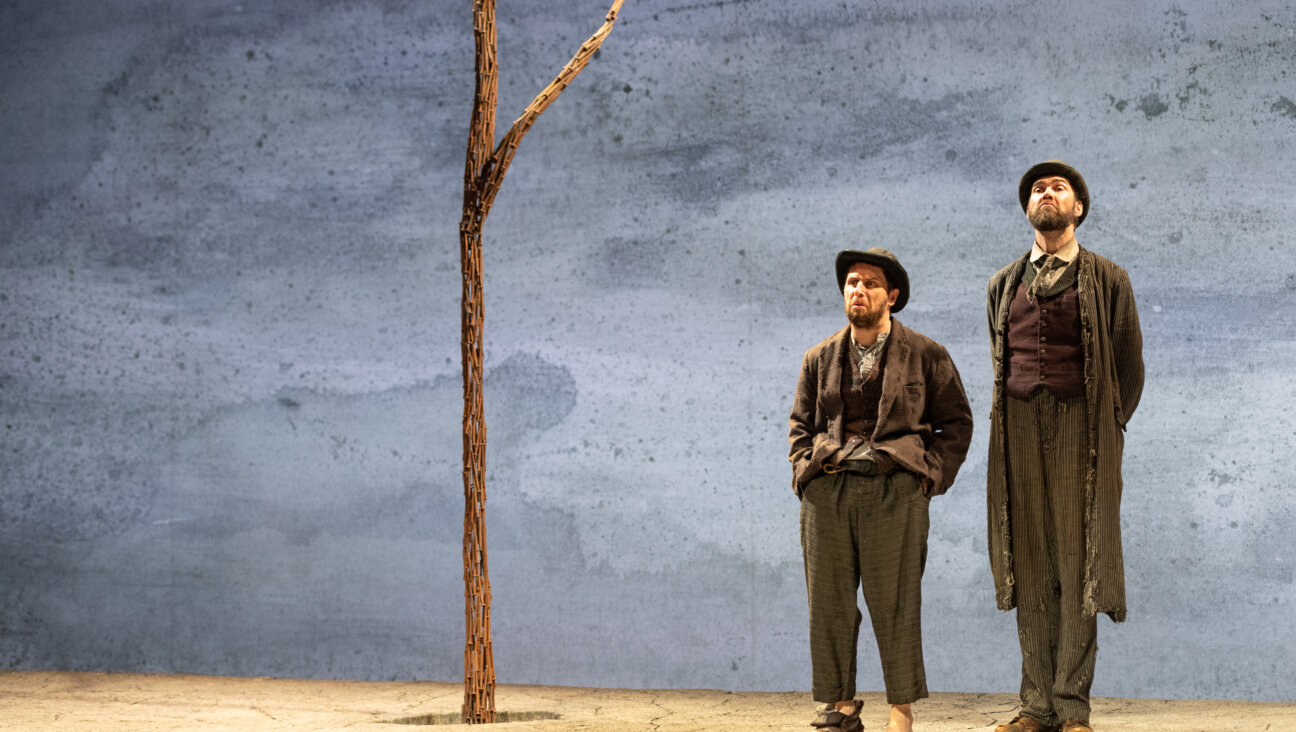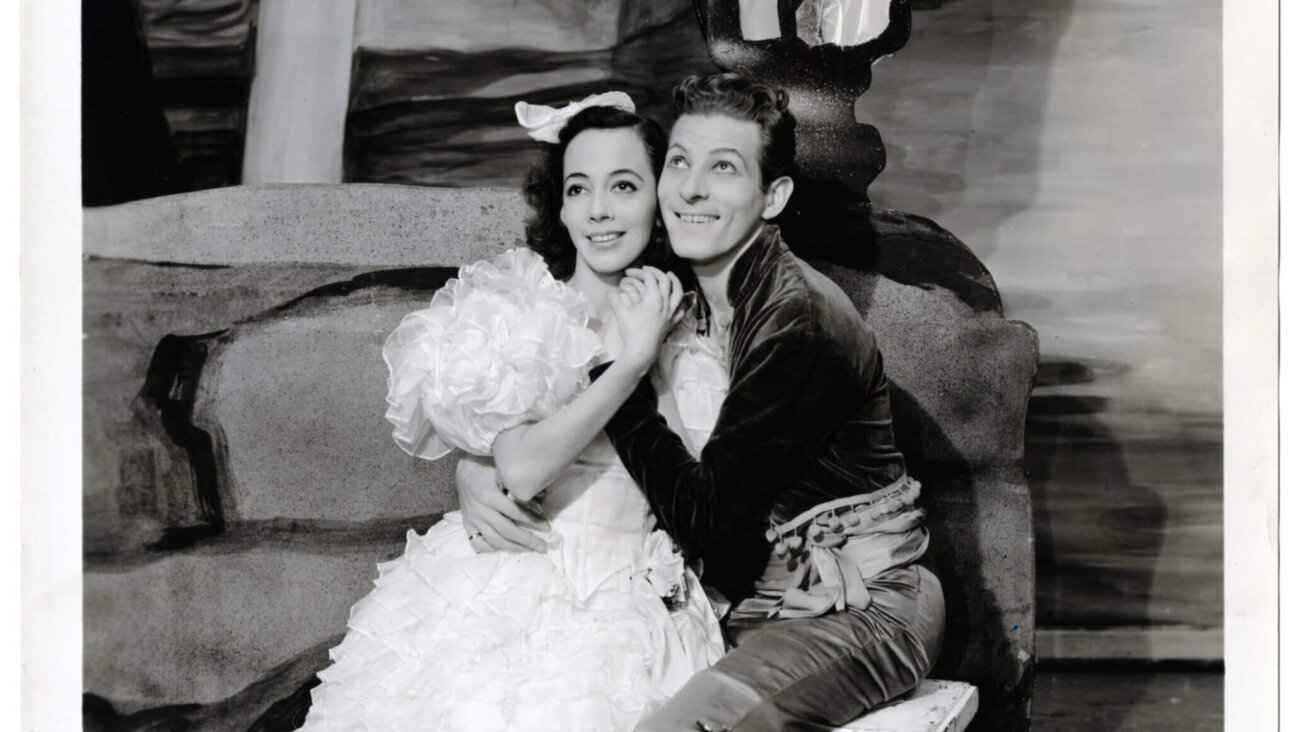Trailblazing Book Reminds Us How Far We’ve Come
The 1950s cast a long shadow over contemporary America. Every week, or so it seems, we’re busy marking the 50th anniversary of one postwar phenomenon after another, from the birth of Levittown and the threat of Sputnik to the flowering of the civil rights movement. These bursts of historical consciousness are all to the good, I suppose, reminding us of the staying power of the past. In fealty to Clio, the muse of history, I, too, would like to add an anniversary to the list: that of the publication of Will Herberg’s landmark book, “Protestant-Catholic-Jew: An Essay in American Religious Sociology.”
Published in 1955 by Doubleday & Company, the volume was praised by none other than Reinhold Niebuhr, arguably America’s leading theologian, who hailed it as “the most fascinating essay on the religious sociology of America that has appeared in decades…. Each chapter presents surprising, and yet very compelling, theses about the religious life of this country.” Other students of American religion agreed. “A classic is a text you can’t get around. Will Herberg’s ‘Protestant-Catholic-Jew’ is a classic. At least, no serious student of religion in American life can get around it,” declared Richard Neuhaus, who succeeded Herberg as the religion editor of National Review. For Martin Marty, one of the nation’s most pre-eminent chroniclers and interpreters of the American religious experience, the book had the distinction of being the “most honored discussion of American religion in mid-twentieth-century times.”
Drawing on a long-standing American tradition in which sociology, the “science that blesses,” functioned not only as a mirror but also as a moral voice, Herberg boldly declared that in postwar America, “to be a Protestant, Catholic or a Jew are today the alternative ways of being an American.” The conditions of contemporary America, he asserted, “convert the three religious communions into variant expressions of American spirituality,” or as one of the book’s most powerful sentences would have it, “Not to be a Catholic, a Protestant, or a Jew today is, for increasingly numbers of American people, not to be anything, not to have a name.” What’s more, in response to those who still might argue for theological purity or the gospel truth, Herberg made a point of describing how Americans of the 1950s had rejected divisiveness in favor of a spiritualized, easygoing neighborliness or what he called the “American way of life.”
The book was not without its decided flaws. Even though, in 1954, Billy Graham had made the cover of Time magazine, which characterized the evangelist as the “best-known, most talked-about Christian leader in the world today, barring the Pope,” Herberg’s treatment of evangelical Protestantism was cursory, at best. He was also insufficiently attuned to the religious experiences of African Americans and to the intransigence of racism. Even so, “Protestant-Catholic-Jew” held its own, emerging in the 1950s as the matrix of that much heralded anthem of national unity: the Judaeo-Christian heritage. The notion that America wasn’t just a Christian nation but a Judaeo-Christian one was not only a powerful rhetorical gambit; it was also one hell of a conceit.
Little wonder, then, that American Jewry took Herberg and his book to its bosom. Although some critics suggested that his view of things had more to do with wishful thinking than with reality — as one observer wrote at the time, perhaps it was Herberg’s saying so that actually helped to make it so— its impact on American Jews cannot be underestimated. It wasn’t just that he relocated Judaism from the margins of American culture, repositioning it as a positive and central force in American affairs, that buoyed members of the American Jewish community. What most heartened them was Herberg’s claim that Judaism ought best be seen as an American phenomenon, as an esteemed expression of the “American way of life,” rather than as a foreign import, a holdover from the Old World. Integrating Judaism into the body politic and, better yet, placing it on a par with the nation’s two major Christian denominations, Herberg made the case that this old-time religion was here to stay.
Today, of course, the cultural and religious landscape is of a different order entirely. For one thing, contemporary America is home to a stunning array of religions — Buddhism, Hinduism, Islam and Santeria, among them — that have little truck with the Judaeo-Christian heritage. It simply doesn’t speak to them. Worse still, it leaves them feeling excluded, on the outs. “When big shots get on a podium all over the United States, I would like the day to come when all will say, ‘Catholics, Protestants, Jews and Muslims,’” one Muslim immigrant recently related. “I would love to see Islam included every single time that someone speaks about religion in America.” For another thing, we’re much more attuned to that which divides us than to that which brings us together. Neighborliness of any sort, let alone the religious kind of which Herberg spoke, is in short supply.
It’s no coincidence, then, that “Protestant-Catholic-Jew” isn’t much read these days, at least not by the general public. I make a point of assigning the book to my students whenever I can, just so that they might take away some sense of how — and why — earlier generations of Americans took heart from and rallied around it. Surely the book deserves better than that, don’t you think?

I hope you appreciated this article. Before you go, I’d like to ask you to please support the Forward’s award-winning journalism this Passover.
In this age of misinformation, our work is needed like never before. We report on the news that matters most to American Jews, driven by truth, not ideology.
At a time when newsrooms are closing or cutting back, the Forward has removed its paywall. That means for the first time in our 126-year history, Forward journalism is free to everyone, everywhere. With an ongoing war, rising antisemitism, and a flood of disinformation that may affect the upcoming election, we believe that free and open access to Jewish journalism is imperative.
Readers like you make it all possible. Right now, we’re in the middle of our Passover Pledge Drive and we need 500 people to step up and make a gift to sustain our trustworthy, independent journalism.
Make a gift of any size and become a Forward member today. You’ll support our mission to tell the American Jewish story fully and fairly.
— Rachel Fishman Feddersen, Publisher and CEO
Join our mission to tell the Jewish story fully and fairly.
Our Goal: 500 gifts during our Passover Pledge Drive!
























